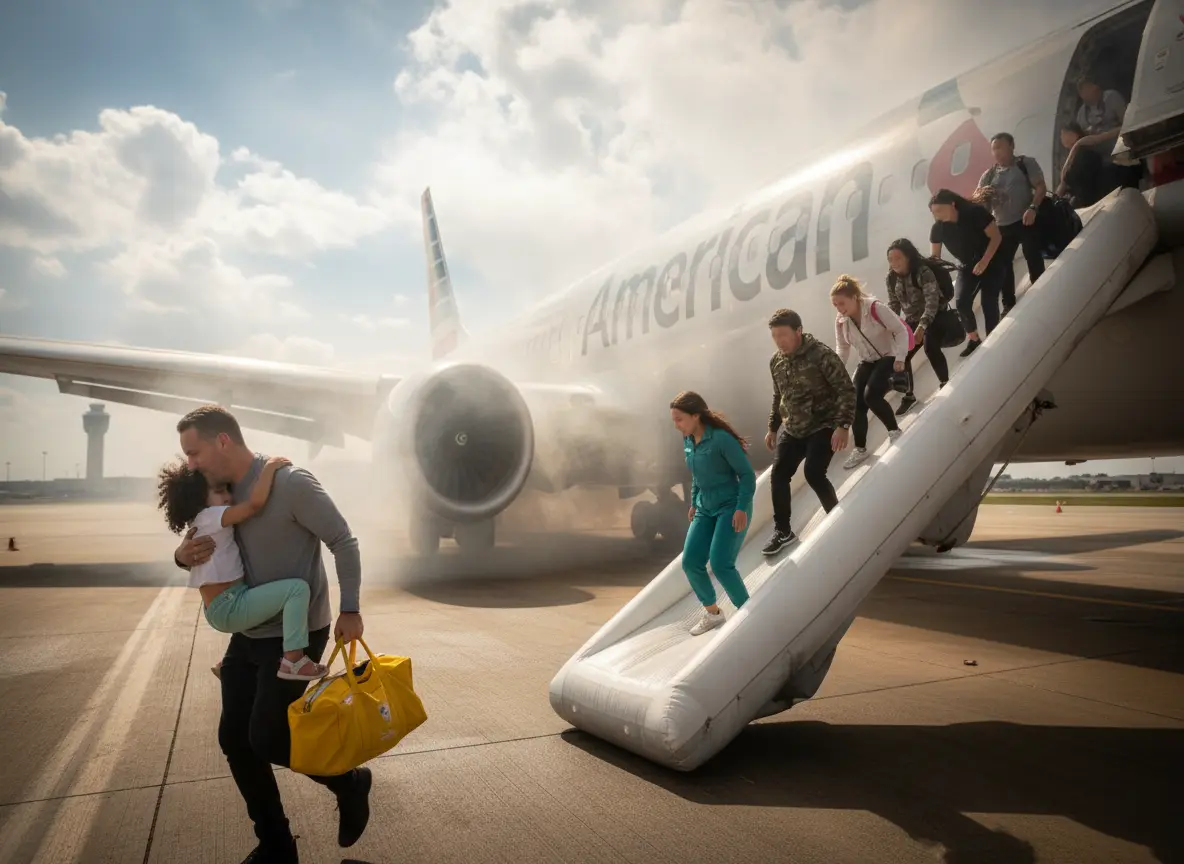FAA’s Urgent Safety Alert: Leave Your Bags in an Emergency
On September 16, 2025, the FAA issued a new Safety Alert for Operators (SAFO 25003), entitled “Addressing Risk Associated with Passenger Non-Compliance and Retention of Carry-On Baggage and Personal Items During Emergency Evacuations.” Why? Because recent incidents show passengers keep trying to retrieve their belongings in emergencies—slowing down evacuation, blocking aisles, sometimes even damaging those all-important emergency slides. Not really what you want when every second matters, right?
Three days later, in a follow-up statement on September 19, the FAA urged U.S. airlines to toughen up their protocols: make safety messages, crew training, and actual evacuation instructions even clearer and firmer. The agency’s own reports leave no doubt: failing to leave your bag behind increases the risk of:
- Blocked aisles and exits
- People tripping or falling
- Precious evacuation time lost, eating into the survival window
- More injuries, and ultimately, more fatalities
Recommendations—Not Law, But a Big Deal
Before you start worrying about sudden fines if your hand touches your wheelie bag, don’t panic: the FAA emphasized that this alert isn’t a binding new regulation. SAFOs are official Flight Standards Service recommendations, but they pack significant weight for airline investigators and inspectors, who use them to push for compliance. In the coming weeks, airlines are expected to update procedures: think revised safety demos and cards, harmonized safety PA announcements, evacuation drill scenarios that factor in “grabby” passengers, and mandatory, effective exit-row briefings every time.
The FAA also suggests that safety efforts should extend beyond the cabin. Airports can help by posting clear displays, running educational videos, putting up universal icons (who doesn’t love a pictogram?), and using punchy slogans like “For everyone’s safety, leave your bags.”
One Rule Ignored Worldwide—With Fatal Consequences
This isn’t just an American thing. Data from recent emergencies says it’s a global problem. In 2019, for example, 41 people died in the fiery evacuation of a Sukhoi Superjet at Moscow’s Sheremetyevo Airport. Photos captured passengers escaping with bags in hand, reigniting questions about whether people actually listen to preflight instructions. Unfortunately, similar situations have been recorded in the U.S., Europe, and Asia. The bottom line? People everywhere grab their bags, and it costs lives.
Here’s the chilling math: international aviation regulations (ICAO) require that an airliner be evacuable in 90 seconds flat using only half the exits. But in reality, reaching that 90-second goal amid chaos, panic, and yes—people digging for their luggage—is hard, sometimes impossible. Every second counts, and every bag in the aisle is a potential blockade.
Why Can’t People Just Follow the Rule?
Let’s face it, airline safety is rarely as simple as “Just do X and everything’s fine.” Picture, for a moment, a lithium battery catching fire inside a locked overhead bin—one you can’t open because the seatbelt sign’s on. Complex, right?
Some passengers say they’re not surprised certain airlines don’t remind people every time. For example, Air France consistently repeats the message, both before take-off and landing. But the question remains: is grabbing your bag in an emergency a criminal offense that endangers others’ lives? In France, penalties can be as high as one year in prison or a €15,000 fine (roughly $16,000 USD). Add a “bag lock” mechanism to keep bins shut? Most think it’d just be one more thing to break, not a solution.
La seule solution serait pas de mettre des consignes de sécurité partout car les gens les connaissent. Mais plutôt d’obliger les companies a faire des message du genre “En cas d’incident amenant à l’évacuation de l’avion, nous vous remboursons l’intégralité de vos biens”. Car les gens qui prennent leurs affaires savent qu’il ne faut pas, ils connaissent juste à quel point les companies aériennes sont des rats et que meme en cas d’accident c’est eux qui devront payer
Translation: “The only real solution isn’t more safety instructions—everyone knows them. Airlines should be required to say, ‘In case of emergency evacuation, we’ll fully reimburse your things.’ Passengers know they’re not supposed to take their bags—they just don’t trust airlines to compensate them if disaster strikes.”
Others go in the opposite direction, arguing that people should be trained to have a small, easily secured emergency pouch—strictly for a laptop, phone, documents, or medication—something that won’t block exits or hold anyone up. Realistically, carry-on cases rarely contain anything truly irreplaceable—usually just a laptop, some meds, and a few bits and bobs. Maybe tough fines (again, €15,000/$16,000 USD and a flying ban for offenders) could make people take the rule to heart. Would folks feel more reassured?
In summary: your bag isn’t worth your life, or anyone else’s. Trust the process, follow the crew’s instructions, and remember—you can always shop for a new toothbrush once you’re safe on the ground.

